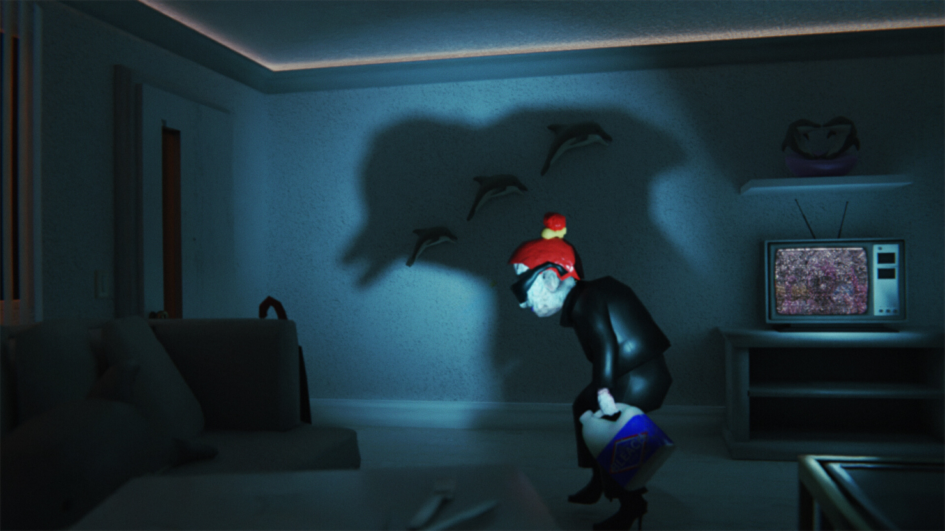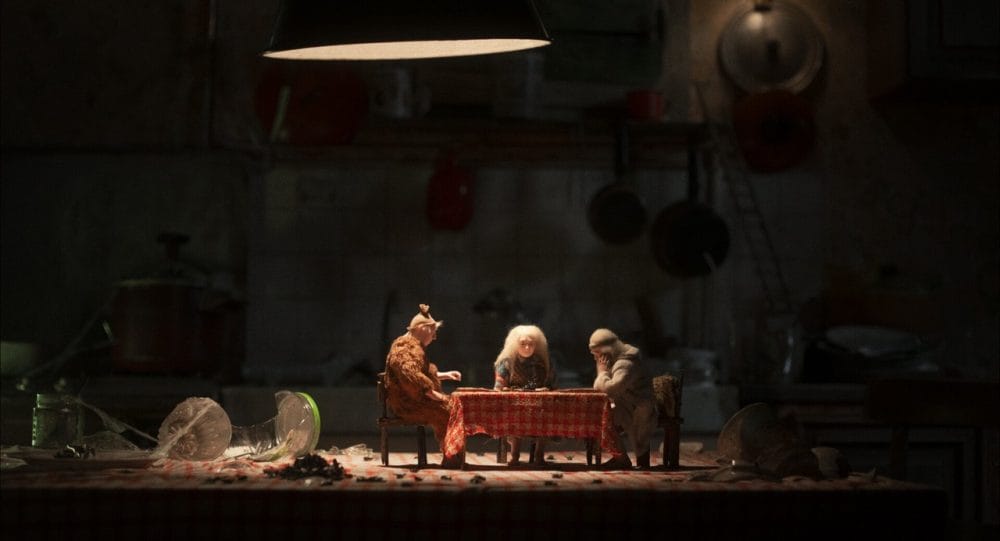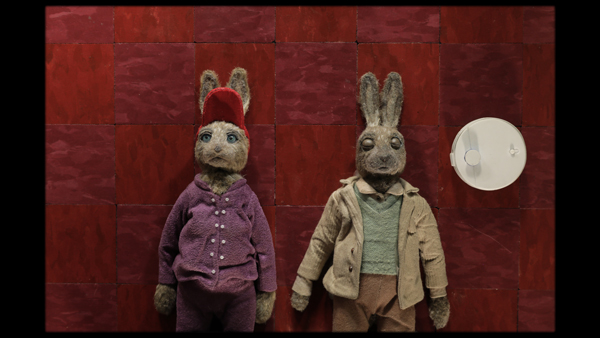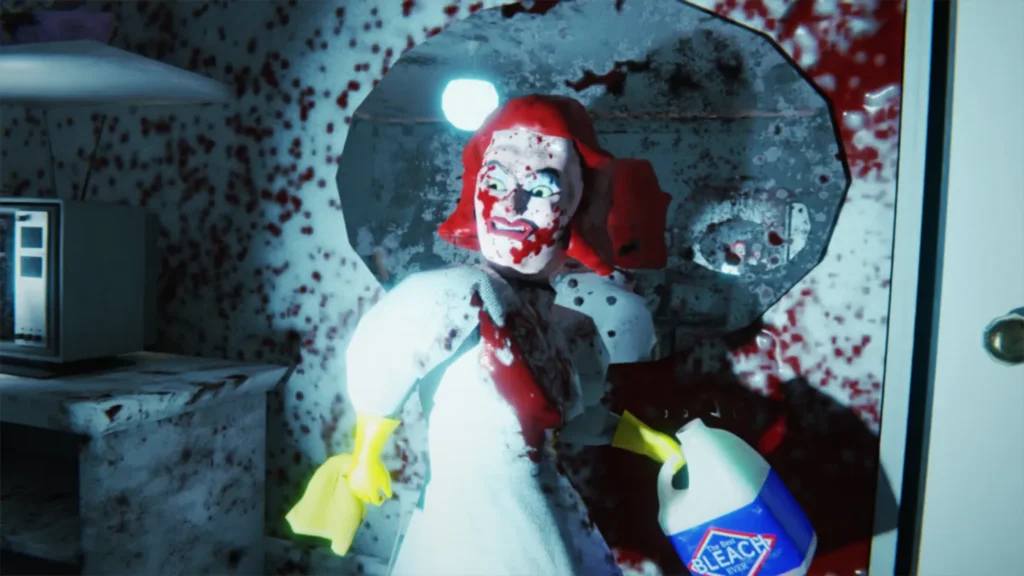The Nashville Film Festival has long been recognized as one of the premier film festivals in the country. Each summer, film enthusiasts from all over head to Music City to immerse themselves in the festival’s many events. While the feature-length movies draw much of the spotlight, the shorts — films with a brief runtime — have built a dedicated fan base of their own. Telling a complete, compelling story in such a limited amount of time requires a skill that many blockbuster filmmakers often struggle to master, making these short films a standout feature of the festival.
This year, I had the opportunity to check out the shorts featured in the animation track at the 55th Nashville Film Festival. Telling a compelling story in a short amount of time is already a challenge, but these talented filmmakers took it a step further by embracing the intricate world of animation. The selection showcased a diverse range of styles, including stop-motion, traditional hand-drawn and digital animation, highlighting the creativity and craftsmanship behind each film.
Wander to Wonder
In a makeshift studio, a man produces an ’80s children’s show called Wander to Wonder, featuring three tiny creatures played by miniature humans. However, after a tragic incident, the miniaturized trio finds themselves isolated from the rest of the world. Facing the threat of starvation, they continue to create increasingly bizarre episodes of their show, despite their grim circumstances.
Wander to Wonder was the first short I watched in the animation track, and despite its brief 14-minute runtime, director Nina Gantz delivers a compelling and emotional story. I found myself fully invested in these characters, rooting for their survival as they pressed on to create episodes for their audience. The looming possibility of their demise tugged at my heartstrings — an impressive feat without relying on the usual emotional triggers like a cute puppy or child. Gantz masterfully creates a strange yet captivating narrative that stayed with me even once the film ended.
Tennis, Oranges
A robot vacuum cleaner decides to abandon its job at a hospital and embarks on a journey to find a deeper purpose. Along the way, it encounters two lonely rabbits and, through a brief but touching dance, brings them together, if only for a fleeting moment.
Tennis, Oranges, like others in the track, was emotionally rich but took a more layered approach. Sean Pecknold manages to give the Roomba a surprising sense of humanity, far more than I ever expected. However, the narrative was a bit difficult to follow at first, requiring multiple viewings to fully grasp. Once I understood its underlying message — that all good things must come to an end– it resonated deeply. That said, its complexity may make it a bit too abstract for some viewers, which could limit its broader appeal.
On the 8th Day
The world is a beautiful place, crafted by God in seven days, teeming with wildlife and lush flora. Yet, when humanity steps in, it takes just a single day to unravel the heaven-sent beauty.
French filmmakers Agathe Sénéchal, Alicia Massez, Elise Debruyne, Flavie Carin and Théo Duhautois have crafted a visually stunning film with little more than yarn. On the 8th Day stands as a testament to the creativity and ingenuity of modern filmmakers. While many rely on digital animation, these creators have shown that thinking outside the box can produce something truly extraordinary.
Ruthless Blade
A warrior white tiger enters a perilous battlefield to rescue his five warrior brothers from execution, only to be confronted by a fierce assassin known as Ruthless Blade. As their intense battle unfolds, their shared past comes to light, adding layers of emotional depth to the fight.
I always appreciate a film with a great twist, and Ruthless Blade delivers just that. The film, crafted in a traditional style inspired by Japanese animation, captivates with its striking art and engaging storyline. The unique and unexpected ending provides a satisfying conclusion that elevates the entire experience.
The Bleacher
After a sock vanishes at a local laundromat, Rita embarks on a quest to find it. Her search leads her into an alternate dimension, where she encounters a dolphin-like creature that forces her to confront an unsettling truth.
Of all the films I watched, The Bleacher delivers the biggest WTF moment. It feels like a digital fever dream, with its grimy, unsettling art style and a soundtrack that amplifies the sense of unease. I did chuckle at the musical score midway through, but when I grasped what it was actually summarizing, a wave of nausea hit me. Directors Nicole Daddona and Adam Wilder have truly crafted something that lingers, and they should be proud of that impact.
Flutz
Flutz immerses us in the world of competitive figure skating, where two rival athletes, coached from childhood by the same mentor, go head-to-head. Star-faced Lena excels in technical precision, while bird-like Lena shines with her artistic grace.
Flutz feels like the weakest entry in this lineup. The use of “reversed language” for dialogue is more distracting than innovative, making it hard to focus while trying to read the captions. The simplistic black-and-white art style lacks visual appeal, offering little to capture the viewer’s attention. While fans of figure skating, like director Ryan McCown, might find it more engaging, the short is likely to be overlooked by general audiences.
With so many strong contenders, selecting the best animated short film from the 55th Nashville Film Festival is no easy task. However, the one that left the deepest impression on me was The Bleacher.
Its grotesque art style and unnerving theme lingered in my mind long after the initial viewing. In fact, I’ve rewatched it four more times, and each time it evokes the same visceral emotions. The film’s ability to create such a powerful and lasting impact in just eight minutes is truly remarkable. I never expected to feel this way about a short film, but The Bleacher proved that even the briefest of experiences can be unforgettable.






